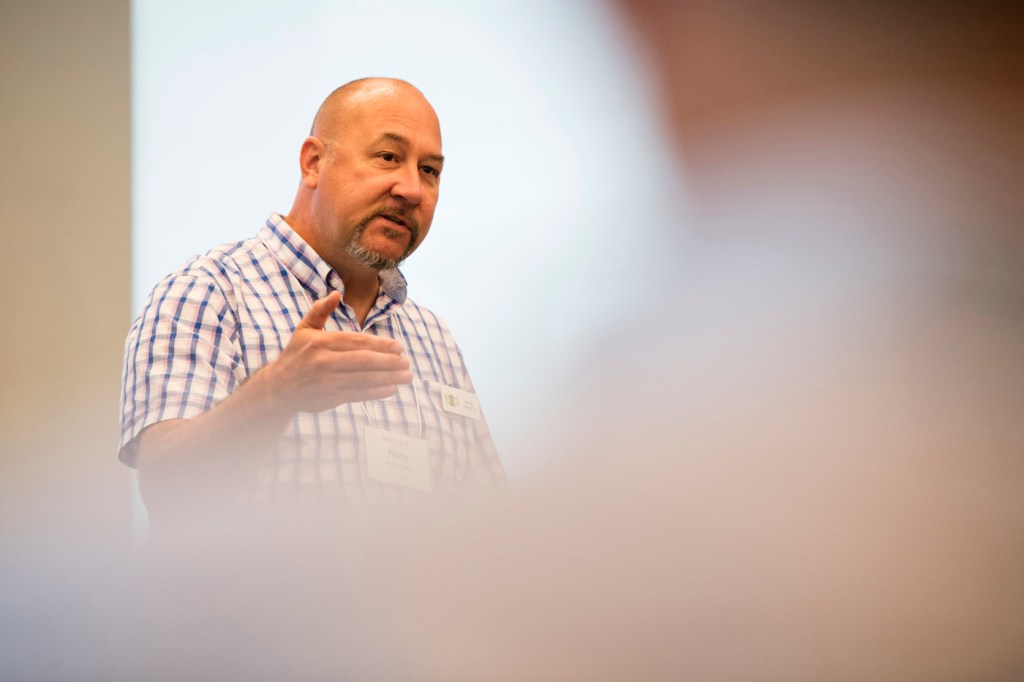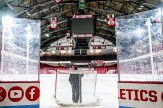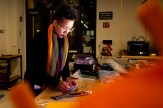With a groundswell of support for experiential learning, K-12 teachers rely on Northeastern to start a movement

In the late 2000s, educators in Iowa were challenged to reinvent high school in Cedar Rapids. Perhaps it was a peculiar request, given that all three of the district’s high schools have graduation rates near the 90th percentile. But at the time, the entire city was rebuilding from two major floods, and officials were taking a hard look at what should be reconstructed and what should be reinvented.
So three educators took on the challenge. They started by reimagining high school altogether, inviting 60 community leaders—business owners, nonprofit workers, community organizers—to attend high school for a day to see what it’s really like. What they found were subjects that weren’t connected to each other, students who were disengaged, and schools that weren’t genuinely connected to their communities.
“We had to challenge every single assumption we’ve ever had in education,” Nate Pruett, one member of a team tasked with re-evaluating Cedar Rapids Schools, said at this week’s Network of Experiential Learning Educators (NExT) conference, hosted by Northeastern. “The majority of assumptions we have about education are not healthy for our kids.”
The solution? Tear down the old education model and build anew. Thus was born Iowa BIG.
Iowa BIG is a program in which students work on community-based projects of their own design and choosing. Instead of individual, separate classes on math and science, they incorporate those skills into projects, such as building a map of storm water runoff within the city. Instead of receiving letter grades, students meet with their teachers to discuss their growth along five different metrics, including joy.
Currently, Iowa BIG is a half-day program. Students still meet their core academic requirements at a traditional high school. Pruett’s goal is for Iowa BIG to grow into a full-day standalone school that not only prepares students for higher education, but for life as well.
Pruett, also one of the founders of Iowa BIG, and Becky Herman, a teacher there, presented their findings at the NExT conference. The four-day conference convened hundreds of educators interested in implementing experiential learning at elementary-, middle-, and high schools around the world.
We know experiential learning increases student engagement and deepens student learning, and not just in the core academic subjects but in ways schools don’t always measure—students are learning how to think, how to collaborate, and how to innovate. More schools should have kids creating, making, and doing.
Chris Unger, NExT organizer
Pruett and Herman explained to a roomful of teachers and administrators how Iowa BIG provides a model for what radically different education might look like.
Indeed, imagining a school that’s not bound by letter grades, set periods, and strict hours is difficult without some kind of guidance. For Iowa BIG, it looks like small cohorts of students called “Family Tables” rather than classes. It looks like curriculum based on community projects instead of assignments with no clear connection to life outside the classroom.
Even if you can imagine it, going from idea to action can also be difficult. That’s what NExT is for.
“We can rally around the notion of experiential learning,” said Chris Unger, one of the NExT organizers and an associate teaching professor in Northeastern’s Doctor of Education program. “Northeastern is known for its commitment to experiential learning, and what we can do with NExT is help the people who want to do this in K-12 [schools] network with each other and learn from each other in order to galvanize a movement here.”
‘A movement’ is exactly what Pruett called it, too.
“We’re all here because we’re frustrated with the current system,” he said. “It starts with something as basic as letter grades. Do you know how unhealthy grades are for the teenage mind? We’re being deleterious to that child’s brain by putting a false economy in front of them that prioritizes strict adherence to a rubric rather than students’ passions and motivations.”
There are pockets of the world where programs like Iowa BIG are underway. There’s one in Barrington, Rhode Island. One in Blue Valley, Kansas. One in Somerville, Massachusetts. But connecting the leaders of these programs with each other and with educators who want to start their own is where NExT comes in.
“I like to say that there are cool schools here and there but there should be cool schools everywhere,” Unger said. “We know experiential learning increases student engagement and deepens student learning, and not just in the core academic subjects but in ways schools don’t always measure—students are learning how to think, how to collaborate, and how to innovate. More schools should have kids creating, making, and doing.”
There’s a groundswell of support for such ideas. This year’s NExT conference has nearly twice the attendance as last year’s. And Unger hopes to expand even further, creating “pop-ups” around the world that would bring NExT into communities.
“The reality is, everything is an experience,” Unger said. “It’s the quality of the experience, though, that leads to the best outcomes.”





